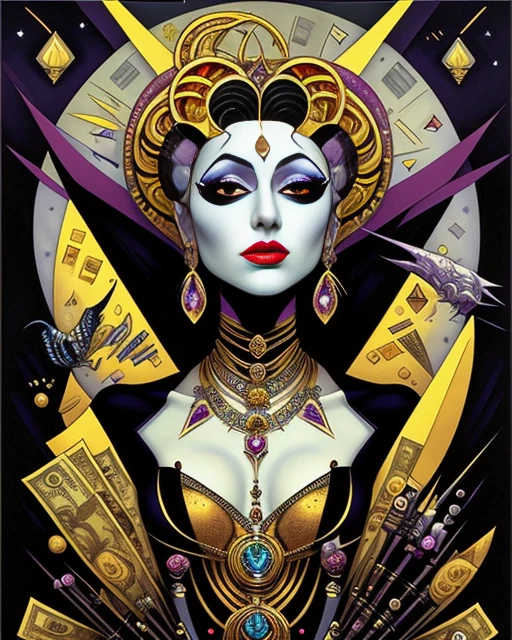The world of Non-Fungible Tokens (NFTs) has exploded in recent years, captivating the imaginations of artists, collectors, and even casual observers. But for many, the question remains: Should I invest in NFTs? It’s a complex decision, fraught with potential rewards and risks, unique opportunities, and inherent uncertainties.
Before taking the plunge, it’s crucial to understand not only the what of NFTs but also the why and the how. This comprehensive guide will delve into the intricacies of NFT investing, equipping you with the knowledge to make an informed decision about whether this emerging market aligns with your financial goals and risk tolerance.
Demystifying the NFT: A Digital Asset Revolution?
Imagine a digital certificate of authenticity, immutably linked to a unique piece of digital content, будь то изображение, видео, музыка или даже твит. This is the essence of an NFT. It leverages blockchain technology to create verifiable ownership and scarcity in the digital realm, a stark contrast to the easily replicated nature of most online content.
This innovation has opened up a new avenue for creators to monetize their work, offering exclusive ownership and potential appreciation to collectors. For example, the iconic “Nyan Cat” meme, transformed into an NFT, fetched a staggering $590,000 at auction.
But what drives the value of an NFT? Unlike traditional investments like stocks or bonds, NFTs lack inherent intrinsic value. Their worth stems primarily from subjective factors:
- Rarity: Limited edition NFTs, like the first tweet ever sent, garner higher prices due to their scarcity.
- Utility: Some NFTs offer access to exclusive communities, events, or even intellectual property rights, increasing their appeal.
- Artist reputation: NFTs created by renowned artists or celebrities tend to command higher prices due to the perceived value associated with their name.
- Community hype: The popularity and engagement surrounding an NFT project can significantly influence its market value.
It’s important to remember that the NFT market is still nascent, and its long-term viability remains uncertain. While some NFTs have experienced astronomical price increases, others have plummeted in value. This inherent volatility makes NFT investing a high-risk, high-reward proposition.
Beyond the Hype: Potential Benefits of NFT Investing
Despite the risks, several potential benefits attract investors to the NFT space:
- Diversification: NFTs can offer diversification for traditional investment portfolios, potentially reducing overall risk.
- Early-stage access: Investing in promising NFT projects can offer potential for significant returns if they gain traction.
- Supporting creators: NFTs empower creators to directly monetize their work, fostering a more equitable digital ecosystem.
- Community ownership: Some NFT projects offer voting rights and governance participation, fostering a sense of community ownership.
- Digital collectibles: For some, NFTs represent a novel way to own and collect unique digital assets.
However, these benefits come with significant caveats:
- High volatility: The NFT market is prone to sudden price swings, making it unsuitable for risk-averse investors.
- Technical complexity: Understanding blockchain technology, NFT marketplaces, and wallet security is crucial for safe participation.
- Fraud and scams: The nascent market attracts bad actors, and due diligence is essential to avoid fraudulent projects.
- Environmental concerns: The energy consumption associated with some blockchains raises sustainability concerns.
Diving into the Deep End: Essential Considerations for NFT Investors
If, after careful consideration, you decide to explore NFT investing, here are some crucial steps to take:
- Educate yourself: Thoroughly understand blockchain technology, NFT marketplaces, and wallet security before venturing in. Resources like CoinMarketCap, Investopedia, and NFT Now offer valuable educational content.
- Define your goals: Are you looking for quick flips, long-term investments, or supporting creators? Aligning your goals with your risk tolerance is crucial.
- Do your research: Deeply research individual projects, considering their team, roadmap, community engagement, and potential utility.
- Start small: Begin with smaller investments to gain experience and navigate the market before committing larger sums.
- Use reputable platforms: Utilize established NFT marketplaces with robust security measures and transparent processes.
- Diversify your portfolio: Don’t put all your eggs in one basket. Spread your investments across different projects and asset classes.
- Be prepared for volatility: The NFT market is volatile, so be prepared for potential losses and don’t invest money you can’t afford to lose.
NFT investing is not a get-rich-quick scheme. It requires careful research, risk management, and a long-term perspective. Approach it with caution, knowledge, and a healthy dose of skepticism, and you might find yourself navigating the exciting, yet unpredictable
Beyond the Basics: Exploring Different NFT Investment Strategies
Now that you’ve grasped the fundamentals, let’s delve deeper into different NFT investment strategies:
1. Flipping NFTs: This involves buying NFTs with the intention of reselling them for a profit at a later date. It demands extensive market knowledge, rapid decision-making, and the ability to identify undervalued gems. Platforms like OpenSea and Rarible cater to this strategy, but be mindful of short-term volatility and potential scams.
2. Investing in established artists and projects: Backing established artists or projects with proven track records can offer stability and potential for long-term value appreciation. Look for projects with strong communities, clear roadmaps, and consistent delivery on promises.
3. Collecting for utility: Some NFTs offer access to exclusive communities, events, or even intellectual property rights. These utility-based NFTs can hold long-term value due to their inherent functionality, but carefully evaluate the actual utility and its potential sustainability.
4. Investing in fractionalized NFTs: These allow you to own a portion of a high-value NFT alongside other investors, making them accessible to those with smaller budgets. Carefully assess the management fees and voting rights associated with these fractionalized ownership structures.
5. Exploring emerging NFT sectors: The NFT space is constantly evolving, with new sectors like gaming, music, and metaverse assets gaining traction. Research these emerging areas, understanding their unique dynamics and potential risks before venturing in.
Remember: Each strategy carries its own set of risks and rewards. Tailor your approach to your individual goals, risk tolerance, and market understanding.
Beyond the Investment: The Future of NFTs
The impact of NFTs extends beyond financial speculation, potentially transforming various industries:
Art & Creativity: NFTs empower artists to monetize their work directly and establish verifiable ownership, fostering a more equitable art ecosystem.
Gaming: NFTs can represent in-game items, characters, or even virtual land parcels, creating new economies within gaming worlds.
Music & Entertainment: NFTs can offer exclusive access to music releases, behind-the-scenes content, or even artist experiences.
Supply Chain & Identity Management: NFTs can be used to track the provenance of goods, verify product authenticity, and streamline identity management processes.
However, challenges remain:
Regulation: The lack of clear regulations around NFTs poses risks like fraud and market manipulation.
Scalability & Sustainability: The energy consumption of some blockchain networks raises concerns about the environmental impact of NFTs.
Inclusivity & Accessibility: The technical barriers to entry can limit participation, hindering widespread adoption.
Despite these challenges, the potential of NFTs to revolutionize various industries is undeniable. Continued innovation and collaboration are key to unlocking their full potential and creating a more equitable and sustainable digital future.
Ultimately, the decision of whether to invest in NFTs is a personal one. Carefully weigh the potential benefits and risks, conduct thorough research, and align your investment strategy with your individual goals and risk tolerance. Remember, the NFT space is still evolving, so stay informed, be cautious, and enjoy the exploration!






